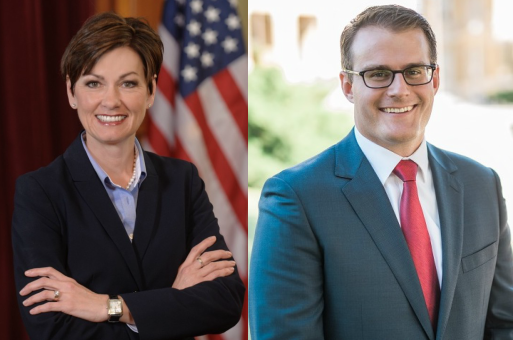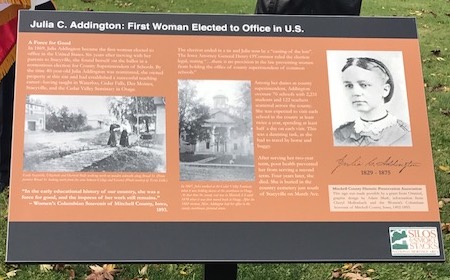Many thanks to Kurt Meyer for sharing his prepared remarks from an October 22 event dedicating a sign in Stacyville (Mitchell County). Meyer encouraged me to give credit to Cheryl Mullenbach, who “more than any other person, brought Julia Addington’s story out of obscurity and into the light of public recognition.” Mullenbach’s article, first published in Iowa Heritage Illustrated in 2007, is on the Stacyville town website and well worth reading. -promoted by desmoinesdem
My name is Kurt Meyer. I am a proud member of the Mitchell County Historic Preservation Association. Today, we gather to honor Julia Addington, one of our remarkable local contributions to the rich, unending flow of history.
Perhaps because history is always in motion, it’s challenging to time-travel back… back to 1869, 148 years ago this month, to October 12, when Julia Addington was elected. Julia Addington – a woman! Bear in mind, women in the U.S. could not vote until the 19th amendment was ratified… something that didn’t happen for another 51 years.
Now, I know I should have told you this as you entered the room today, but this isn’t really the Stacyville Public Library. It’s a space capsule – also known as the “Wayback Machine” – and you and I together are about to time-travel. Hold on to your hats, buckle your seat belts, and ignore the calendar on your cellphone.
Woosh! I have news: It’s no longer 2017. We’re back in 1869.
Continue Reading...



















